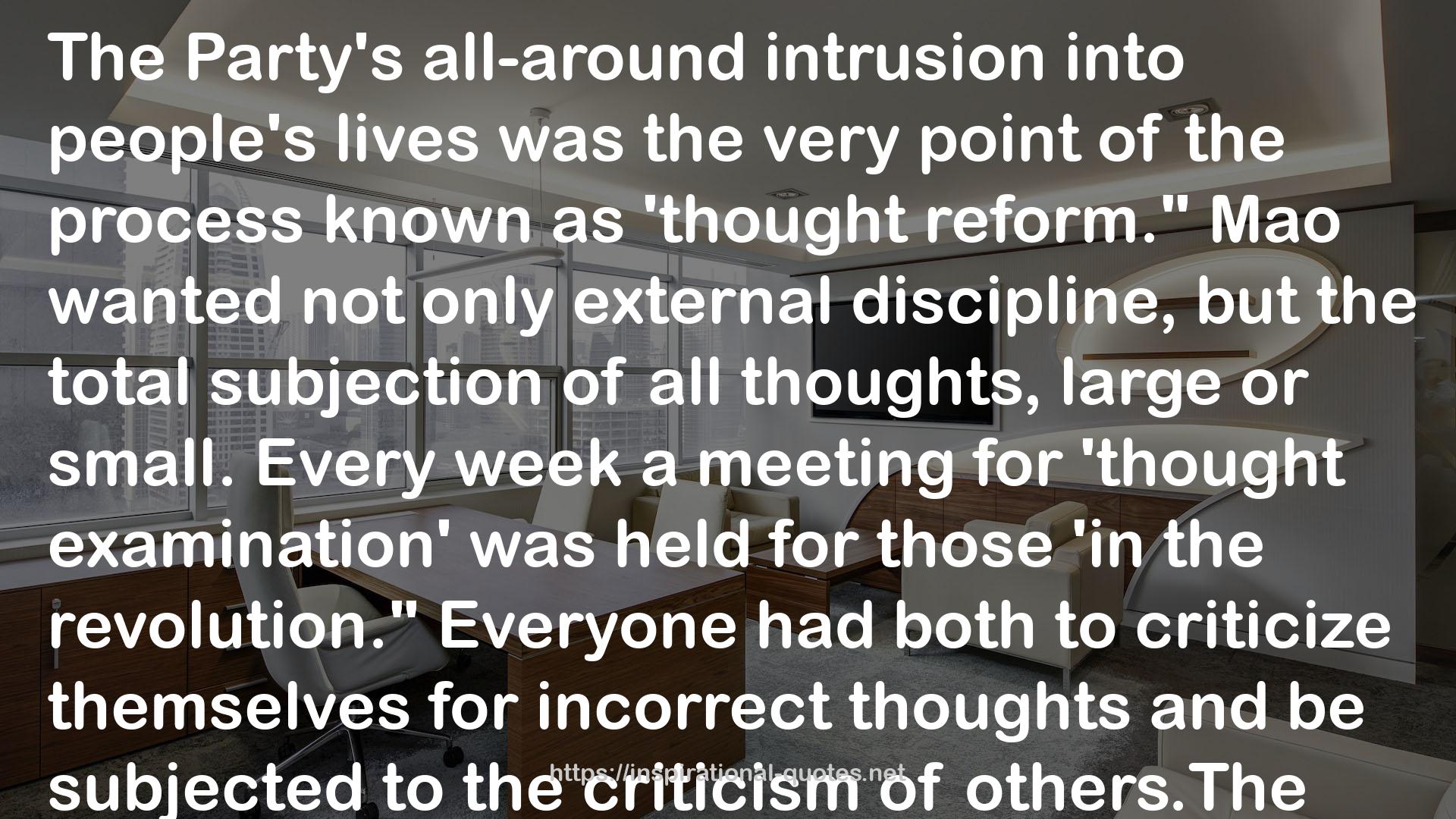" The Party's all-around intrusion into people's lives was the very point of the process known as 'thought reform." Mao wanted not only external discipline, but the total subjection of all thoughts, large or small. Every week a meeting for 'thought examination' was held for those 'in the revolution." Everyone had both to criticize themselves for incorrect thoughts and be subjected to the criticism of others.The meetings tended to be dominated by self-righteous and petty-minded people, who used them to vent their envy and frustration; people of peasant origin used them to attack those from 'bourgeois' backgrounds. The idea was that people should be reformed to be more like peasants, because the Communist revolution was in essence a peasant revolution. This process appealed to the guilt feelings of the educated; they had been living better than the peasants, and self-criticism tapped into this.Meetings were an important means of Communist control. They left people no free time, and eliminated the private sphere. The pettiness which dominated them was justified on the grounds that prying into personal details was a way of ensuring thorough soul-cleansing. In fact, pettiness was a fundamental characteristic of a revolution in which intrusiveness and ignorance were celebrated, and envy was incorporated into the system of control. My mother's cell grilled her week after week, month after month, forcing her to produce endless self-criticisms.She had to consent to this agonizing process. Life for a revolutionary was meaningless if they were rejected by the Party. It was like excommunication for a Catholic. Besides, it was standard procedure. My father had gone through it and had accepted it as part of 'joining the revolution." In fact, he was still going through it. The Party had never hidden the fact that it was a painful process. He told my mother her anguish was normal.At the end of all this, my mother's two comrades voted against full Party membership for her. She fell into a deep depression. She had been devoted to the revolution, and could not accept the idea that it did not want her; it was particularly galling to think she might not get in for completely petty and irrelevant reasons, decided by two people whose way of thinking seemed light years away from what she had conceived the Party's ideology to be. She was being kept out of a progressive organization by backward people, and yet the revolution seemed to be telling her that it was she who was in the wrong. At the back of her mind was another, more practical point which she did not even spell out to herself: it was vital to get into the Party, because if she failed she would be stigmatized and ostracized. "
― Jung Chang , Wild Swans: Three Daughters of China
